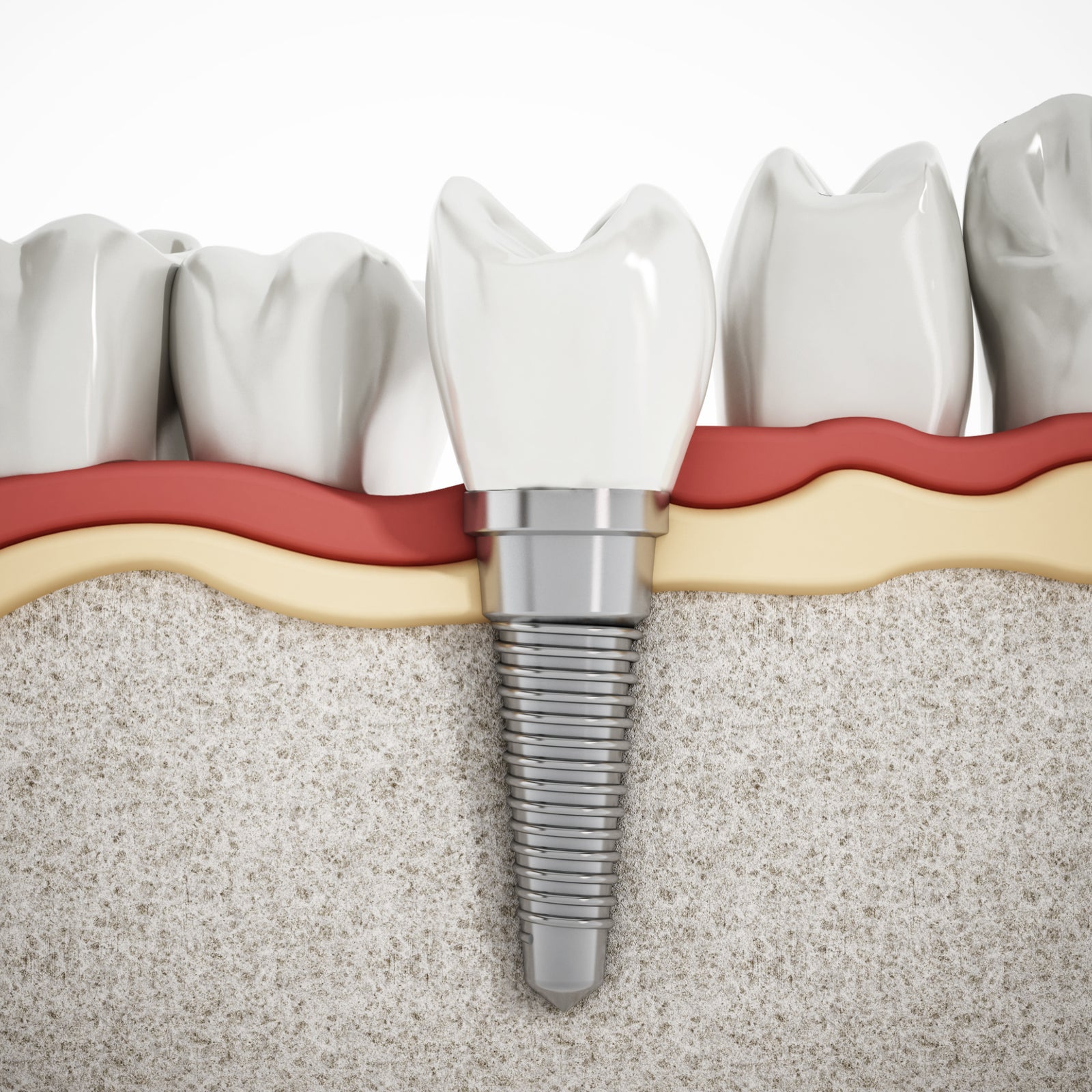
Are you missing one or more of your permanent teeth? If so, you might be considering a tooth replacement option. Dental implants are an innovative and popular solution for replacing missing teeth. With their natural look and feel, dental implants can help restore the beauty and function of your smile in an effective way. In this blog post, we'll explore what dental implants are, caring for them and the potential benefits these tooth replacements offer – from providing enhanced aesthetic appeal to restoring vital oral health functions that make life easier.

What are dental implants:
Dental implants are a permanent solution to restoring your oral health. They can be used to replace one or several missing teeth due to tooth decay and/or gum disease, providing a natural and secure replacement that looks, feels and functions much like a real tooth. Dental implants have revolutionized the field of dentistry by allowing dental professionals to replace a full arch of teeth. This is particularly helpful for gum disease sufferers who have lost their entire arch due to oral health issues; the implants may be placed to secure full dentures. Dental implants offer a reliable solution to those that do experience these problems, so they don't have to feel self-conscious about their smile.
Dental implants are made of titanium, a strong and durable material that is designed to mimic a natural tooth root (post) and provide a structure for a crown or denture to be screwed onto. Titanium molecularly bonds with gum tissue and jawbone to create an anchor for artificial teeth to be secured in place long-term. Dental implants are just one part of what can be a comprehensive approach for maintaining ideal oral health. Alongside treatments like regular professional cleaning and home care such as brushing twice daily and flossing daily, opting for dental implants can be the start of returning to the best oral hygiene possible.
ToothShower Water Flosser For Implants
Dental implants are a great solution when it comes to replacing missing teeth, but they can come at a high cost. Depending on the number of replacement teeth needed, the complexity of the procedure, the materials used, and other factors, an individual may end up paying anywhere from $1,000 to $4,000 per tooth for dental implants. It is important to consult with an experienced dentist to get accurate information about any costs that may be associated with dental implants. Additionally, some healthcare insurance plans may provide coverage for certain implant treatments depending on the provider and policy type.

Caring for dental implants:
Caring for dental implants is essential to ensuring their longevity and effectiveness. To keep implants clean and free from infection, water flossers should be used daily to help remove plaque/debris from around the posts, crowns and beneath implant-supported dentures. While string floss can be used on an implant, it is not recommended as it could get stuck underneath the implant collar and cause irritation or infection. Water flossers are the best options, they provide accurate water pressure that allows water to pass through gum pockets, removing food particles and plaque from any area around the implant post. A soft-bristled toothbrush should also be used two times per day. Regular professional cleanings should also be followed throughout the year to ensure a healthy smile for life as with any type of dental appliance.
Smoking, drinking alcohol, and using drugs can all contribute to gum disease and other oral health issues related to dental implants. If you smoke or drink, try cutting down or quitting entirely as these unhealthy habits can lead to plaque buildup on the implant which could cause inflammation of the gums. Similarly, chewing tobacco or hard candy can put extra strain on the implant which could lead to breakage or loosening of the implant over time.
Dental implants have become a popular solution to replace missing teeth, but prospective patients should be aware of the possible risks that come with them. Peri-implant diseases are classified into two categories. The first category is peri-implant mucositis which causes swelling, redness and bleeding of the gum tissue surrounding the implant, with no signs of bone loss. The second category is peri-implantitis, an inflammatory condition which affects the soft tissue around the implant and leads to bone loss. Peri-mucositis is a precursor to peri-implantitis, and evidence suggests that peri-mucositis is reversible if caught early. Peri-implantitis usually requires surgical treatment.1
In both cases, early detection is important in order to minimize discomfort and prolong the life of your implants. Proper oral hygiene and regular dentist appointments are key in preventing both peri implantitis and peri implant mucositis. During these dental visits, your dentist will look for any signs of infection such as redness or swelling around the implant site, as well as take X-rays if necessary. They will also give you advice on how best to care for your dental implants so you can maintain good oral hygiene at home.
We have covered what dental implants are, full arch dental implants, and a suggested daily cleaning routine for those with dental implants. String floss can be tricky to use correctly around a dental implant so investing in a water flosser might be helpful for better overall results. Looking after your oral health is essential regardless of dental implants or not but special care should always be taken when you get any foreign body implanted inside your mouth. So don’t forget to water floss - with care - and keep up with your periodic maintenance schedule. To make cleaning around your implants easier, try out the ToothShower shower-powered water flosser specifically designed for people who want to conveniently take extra special care of their teeth and gums!
The post The Importance of Caring for your Dental Implants appeared first on ToothShower
Post a comment and receive a FREE ebook: Gum Disease is Silent. Ebooks are emailed monthly.



Leave a comment (all fields required)